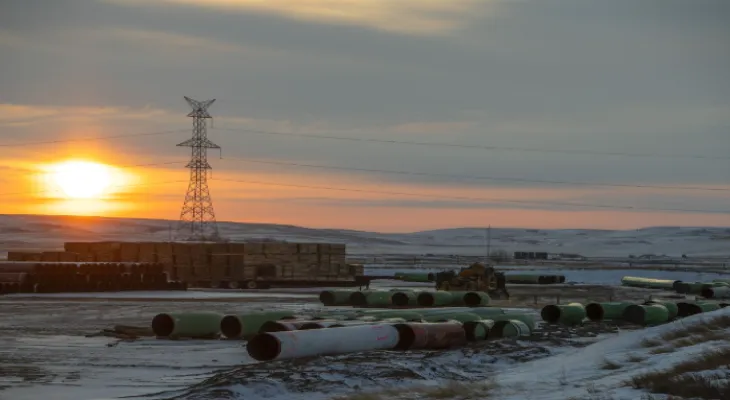Search here
Newspaper
Search here

Arab Canada News
News

Published: March 8, 2024
Oil prices rose after a brief suspension of services on the "Keystone" pipeline, which is an important channel transporting Canadian crude to the United States.
Brent crude futures rose above $83 per barrel after closing unchanged on Thursday. West Texas Intermediate crude rose by up to 0.8%, reaching over $79. The operating company, TC Energy Corp, confirmed in a statement the safety of "Keystone," adding that the service was temporarily suspended "as a precautionary measure" and no amount of crude was leaked.
Oil has traded in a narrow range this year, with limited spread between supply and demand prices, and less volatile trading this week, leading to prices being confined within their narrowest range since September 2021. The cuts by the OPEC+ alliance and rising tensions in the Middle East and Red Sea were balanced by increased supply from producers outside the alliance, including the United States, amid continued concerns about China's growth.
Comments by Federal Reserve Chairman Jerome Powell that the central bank is nearing the confidence needed to begin cutting interest rates, comments that helped push the dollar to its sixth day of declines, also supported commodities including crude oil.
Han Chong Liang, an investment strategist at Standard Chartered Bank, said: "We expect oil markets to remain tight in the short term," supported by OPEC+ supply cuts and better than expected consumption data this week from the United States and China. The bank expects West Texas Intermediate crude for three months to reach $80 per barrel.
The country’s largest energy producer said that demand for oil in China has entered a phase of low growth as the country shifts away from fossil fuels. While total consumption will continue to rise, increasing reliance on electric vehicles and liquefied natural gas trucks will reduce gasoline and diesel use this year, said Luo Ruokuan, head of the Research Institute of Economic and Technological Development at China National Petroleum Corporation in comments to Bloomberg TV.
Comments